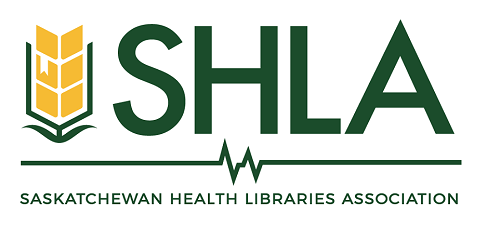Meeting Date: January 27, 2020
Presenter: Kaetlyn Phillips
Article: Fuhr, J. (2019). “How do I do that?” a literature review of research data management skill gaps of Canadian health sciences information professionals. Journal of Canadian Health Libraries Association, 40, 51-69. 10.29173/jchla29371.
Questions:
1) Are you familiar with research data management (RDM)? Have you been asked to start or participate in RDM programs? Do you feel there is a gap in your knowledge?
- There is absolutely a gap in my knowledge of this topic
- Only heard the term before, didn’t know everything it pertained to, did want to know about it so the article was a good choice
- Heard of some of some of the concepts before but wasn’t sure what they meant in context of library work
- What role do we play, in terms of offering these services for our patrons
- Knowledge gaps are overwhelming, once you get comfortable with the jargon the process becomes easier as does identifying missing skills
- Not just us in the libraries, many professions have this problem
2) Do you agree with the list of skills provided in Table 1? Should skills be added? Which ones? Why?
- Security knowledge or confidentiality and the limitations of de-identified data
- Seems like a lot to put on a single person
- When I looked at the skills listed in the article and thought about what it is I do, I felt overwhelmed. I think having an expert is better than pushing it on librarians without training
- It’s a lot of put on librarian’s without training, needs to be a collaborative process, consulting with a librarian who is a RDM librarian
- The list of skills looked like a job description, you would need someone to do this full time not just tacked onto existing responsibilities of the existing librarians. Academic institutions are creating Research Data Management positions, so the future of RDM in health sciences could be collaborative as opposed to one librarian doing many roles
3) In your opinion, what role will RDM play into Healthcare’s Evidence based practice?
- Better organized and available data can make for better studies because more participants’ information can be included for analysis, IF the data uses the same metadata or architecture or even standardized terminology
- Making metadata available is a definite weakness, making a user’s guide is super helpful so you can understand what you’re looking at
- Only a couple of people have heard of the data centers in Saskatchewan which are targeting health researchers (e.g. for rare diseases)
4) The article has many suggestions for implementing RDA training. What kind of training would work best for health sciences librarians?
- Asynchronous but organized, lower stakes less stress, not overwhelming people with all of the possible information
- Ties back to context, it would depend on the librarian’s skill set, we shouldn’t play down the knowledge and skill set we bring as librarian’s
- Peer-to-peer but also, given the skill sets mentioned in the article we might already have similar skills that can be applied
- Quite a few classes in MLIS are only offered once a year so you often miss out if you only want to do your MLIS within the usual timeline (one year)
- We could advocate of continuing education in our associations
- There’s a lot of courses on data management and analysis that are for using the data and not for organizing it after the fact or while gathering it
- There’s lots out there but finding it, finding good quality and getting credit for it is difficult
- RDM courses that are self-paced and open are needed. Even if iSchools and MLIS programs include courses on RDM, it’s possible that those courses won’t be enough to fill the knowledge gap. Peer to peer professional development would also be beneficial.
5) The author “foresees a trickle-down effect of research data services in health sciences and specialized libraries, regardless of affiliation with a post-secondary institution” (Fuhr, 2019, p.57). Based on your experience and knowledge, do you agree or disagree with the statement?
- Only if we speak up, scientists have a tendency to silo their data because of how research and promotion is rewarded (the originality of the research and the groundbreaking is rewarded over reproducibility; despite reproducibility being the backbone of science)
- We’d have to take initiative to get them involved with us
- We have a relationship with our research department, but it’s a bit of a black box, there’s other services we focus on so it’s also a capacity issue for us even just getting people on board
- It’s not on our radar
- Will the grant application process, the necessity of having an RDM process in your application, will that change the playfield?
- Research has never been the main driver of hospitals
- The concept of a trickle-down effect seems implausible, or would take a long time to occur. Within health science organizations, research is often a separate branch outside of the library, so libraries would need to promote the service over being “forced” into it. Within academic health science institutions, RDM is falling under the library’s roles and duties, so consulting with a librarian could be encouraged.
Any other questions? Comments?
- Great article, showed a gap in our knowledge, which is part of the point of Journal Club
- Check out Portage Network for learning more about RDM https://portagenetwork.ca/
- Also, Research Data Management Librarian Academy (RDMLA) https://rdmla.github.io/
